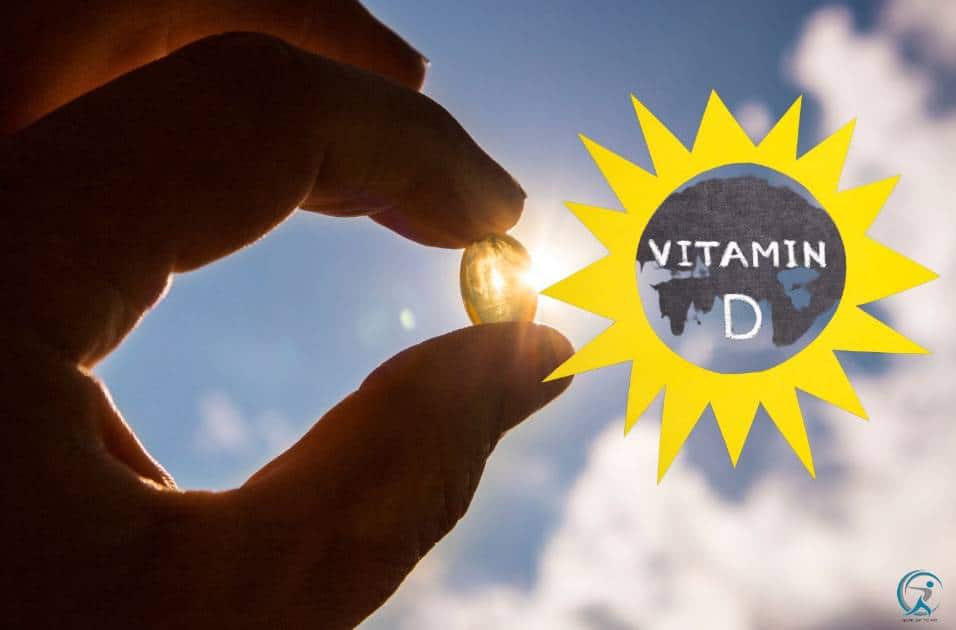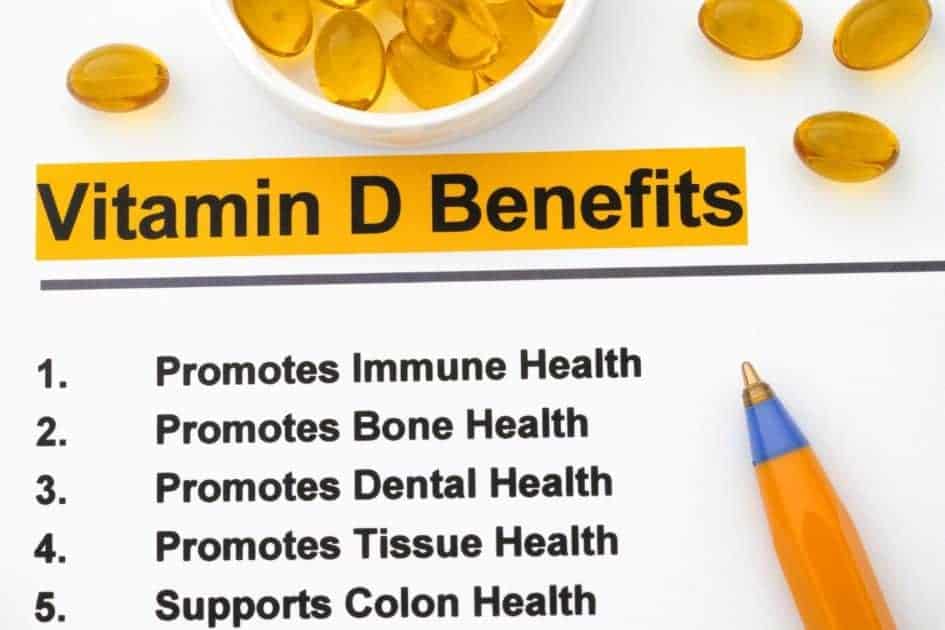Vitamin D isn’t just a nutrient—it’s the bedrock of vitality for men over 40. From dodging vitamin D deficiency to optimizing muscle function and shielding against chronic diseases, this fat-soluble vitamin is non-negotiable.

How Much Vitamin D is Enough?
Key Science-Backed Takeaways:
- Optimal daily Vitamin D intake levels
- Sun exposure vs. supplementation
- Best dietary sources of Vitamin D
- Testing and maintaining healthy levels
- Risks of deficiency and overdose
Let’s dive into a no-stone-unturned plan to crush deficiency, avoid vitamin D toxicity, and leverage additional health benefits.
Key Takeaways:
- Vital Role of Vitamin D: This fat-soluble vitamin is essential for bone health, immune function, and muscle strength, helping to prevent issues like bone pain and chronic diseases.
- Testing Your Levels: Regular testing of 25-hydroxyvitamin D levels is crucial. Levels below 20 ng/mL indicate severe deficiency, while levels above 100 ng/mL can lead to vitamin D toxicity.
- Precision Supplementation: Recommended daily intakes are typically between 2,000–4,000 IU of vitamin D3. Adjustments may be necessary based on medical conditions and lifestyle factors.
- Dietary Sources Matter: Key sources of vitamin D include fatty fish (like salmon), egg yolks, and fortified foods. Proper dietary intake is critical, especially if sun exposure is limited.
- Identify Risk Factors: Men over 40, individuals with darker skin, and those with limited sun exposure or certain medical conditions are at higher risk for vitamin D deficiency.
- Symptoms and Long-Term Risks: Recognize symptoms such as muscle weakness and bone pain. Long-term deficiencies can lead to serious health issues like osteoporosis and cardiovascular disease.
Why Vitamin D is Your Silent MVP

The active form of vitamin D (D3) fuels:
- Bone Health: Partners with calcium supplements to build strong bones and prevent bone pain or fractures.
- Immune Systems: Shields against infections, critical for those with inflammatory bowel disease or ulcerative colitis.
- Muscle Function: Battles muscle weakness—a red flag for vitamin D insufficiency.
- Disease Defense: Lowers risks of cardiovascular disease, chronic kidney disease, and rickets in children (in severe cases).
The Crisis: After 40, vitamin D synthesis from sun exposure plummets. Add dark skin (reducing UV absorption), weight-loss drugs (impairing fat absorption), or gastric bypass surgery, and deficiency becomes inevitable without a tactical plan.
Your Battle Plan: Test, Dose, Conquer

1. Test Like a Pro
A simple blood test for 25-hydroxyvitamin D (measured in nanograms per milliliter or nanomoles per liter) is non-negotiable. Here’s your cheat sheet:
| Level (ng/mL) | Status | Action |
|---|---|---|
| <20 | Severe Deficiency | Urgent vitamin D supplementation (e.g., weekly 50,000-IU vitamin D2). |
| 20-30 | Insufficiency | Boost dietary sources (fatty fish, egg yolks) + daily supplement (1,000–4,000 IU D3). |
| 30-60 | Sufficient | Maintain sun exposure; retest annually. |
| >100 | Vitamin D Toxicity | Stop supplements to avoid kidney failure or soft tissues damage. |
Note: The National Institutes of Health endorses 30–60 ng/mL for adequate blood levels.
2. Precision Dosing: No Guesswork
- Baseline: 2,000–4,000 international units (IU) of vitamin D3 daily.
- Adjust For:
- Sun Exposure: 10–30 minutes midday (longer for darker skin or winter months). Balance with sunscreen to curb risk of skin cancer.
- Dietary Sources: Prioritize fatty fish (salmon: 570 IU/serving), egg yolks, beef liver, fortified foods (milk, cereals), and cod liver oil.
- Medical Conditions: Celiac disease, parathyroid surgery, or malabsorptive-type bariatric surgery may demand higher doses of vitamin D.
Pro Tips:
- Take supplements with your largest meal (avoid fat-free meals—they slash absorption).
- Pair with calcium supplements (1,200 mg/day) to optimize absorption of calcium.
3. Deficiency Risks: Are You a Target?
Red Flags:
- 🚩 Age >40, Asian background, or Skin color reducing UV efficiency.
- 🚩 Lack of sun exposure (office jobs, summer months spent indoors).
- 🚩 Medical conditions like chronic kidney disease, inflammatory bowel disease, or obesity.
- 🚩 Poor appetite, loss of appetite, or weight-loss drugs disrupting fat absorption.
Symptoms of Vitamin D Deficiency:
- Bone pain, muscle weakness, frequent urination, kidney stones.
- Fatigue, irregular heartbeat, loss of appetite.
Long-Term Risks:
- Rickets in children, osteomalacia, osteoporosis, skin carcinogenesis (from UV-B damage).
4. Food vs. Supplements: The Ultimate Showdown
- Top Food Sources:
- Fatty fish (mackerel: 360 IU/serving)
- Egg yolks (40 IU each), fortified milk (120 IU/cup)
- Beef liver, fish liver oil, breast milk (low in D; infants need drops).
- When Supplements Rule:
- Vitamin D insufficiency or severe vitamin deficiency.
- Malabsorption from medical conditions or surgeries (gastric bypass).
Avoid Toxicity:
- Vitamin D toxicity (>100 ng/mL) triggers nausea, kidney damage, blood calcium levels spikes. Never exceed 4,000 IU/day without medical advice.
Learn more about Foods rich in vitamin D
Pro Strategies for Mastery
- Sync with Calcium: 1,200 mg/day from dietary sources (kale, dairy) or calcium supplementation.
- Time It Right: Take daily supplements at the same time of day (e.g., morning with breakfast).
- Annual Testing: A Micronutrient Test tracks vitamin D status and exposes nutritional deficiencies.
- Sun Smarts: Balance UV exposure with sunscreen to dodge UV-B damage and skin cancers.
FAQ: Zero Fluff, All Facts
Q: Can vitamin D2 match D3?
A: No. D3 (cholecalciferol) is the superior form of vitamin D for raising blood level.
Q: Does Skin type affect needs?
A: Yes. Darker skin needs 3–5x longer sun exposure for the same vitamin D production.
Q: Can excess vitamin D harm kidneys?
A: Absolutely. Kidney stones, kidney failure, and soft tissues calcification are risks.
Q: What’s the upper intake level?
A: 4,000 IU/day. Surpass this and risk vitamin D toxicity.
Q: How do weight-loss drugs affect D?
A: They hinder fat absorption, crippling uptake of this fat-soluble vitamin.
Take Charge Now
- Test: Demand a 25-hydroxyvitamin D test (covered by most insurers).
- Optimize: Blend sun exposure, fortified foods, and vitamin D3 supplements.
- Educate: Review observational studies from the National Health and Nutrition Examination Survey.
References:
[1] https://www2.hse.ie/conditions/vitamins-and-minerals/vitamin-d/
[2] https://www.blv.admin.ch/dam/blv/en/dokumente/das-blv/organisation/kommissionen/eek/vitamin-d-mangel/datenlage-sicherheit-empfehlung-vitamin-d-mangel.pdf.download.pdf/EEK_Vitamin_D_Executive_Summary_en.pdf
[3] https://pmc.ncbi.nlm.nih.gov/articles/PMC5990871/
[4] https://pmc.ncbi.nlm.nih.gov/articles/PMC3897598/
[5] https://www.uclahealth.org/news/article/ask-the-doctors-round-sun-exposure-vital-to-vitamin-d-production
[6] https://www.webmd.com/diet/vitamin-d-deficiency
[7] https://ods.od.nih.gov/factsheets/VitaminD-Consumer/
[8] https://pubmed.ncbi.nlm.nih.gov/24814938/
[9] https://www.cancer.ie/cancer-information-and-support/cancer-types/skin-cancer/vitamin-d-and-the-sun
[10] https://pmc.ncbi.nlm.nih.gov/articles/PMC8074587/
[11] https://www.frontiersin.org/journals/nutrition/articles/10.3389/fnut.2023.1253341/full
[12] https://www.news-medical.net/news/20240614/New-recommendations-on-vitamin-D-intake-for-children-pregnant-people-adults-over-75-and-those-with-high-risk-prediabetes.aspx
[13] https://www.healthline.com/nutrition/vitamin-d-dosage
[14] https://www.medicalnewstoday.com/articles/normal-vitamin-d-levels
[15] https://www.fsai.ie/getmedia/b80b486e-7eab-423a-b336-30e666b2f26c/vitamin-d-scientific-recommendations-for-5-to-65-year-olds-living-in-ireland.pdf
[16] https://www.nice.org.uk/guidance/ph56/resources/vitamin-d-supplement-use-in-specific-population-groups-pdf-1996421765317
[17] https://ods.od.nih.gov/factsheets/VitaminD-HealthProfessional/
[18] https://www.eatforhealth.gov.au/nutrient-reference-values/nutrients/vitamin-d
[19] https://academic.oup.com/edrv/article/45/5/625/7659127
[20] https://www.nhs.uk/conditions/vitamins-and-minerals/vitamin-d/
As a veteran fitness technology innovator and the founder of GearUpToFit.com, Alex Papaioannou stands at the intersection of health science and artificial intelligence. With over a decade of specialized experience in digital wellness solutions, he’s transforming how people approach their fitness journey through data-driven methodologies.